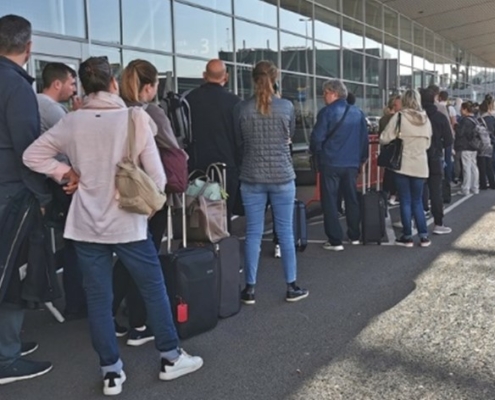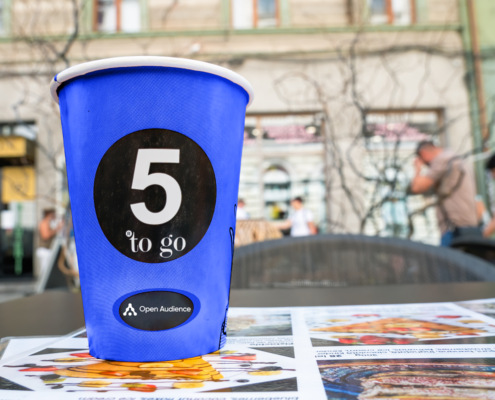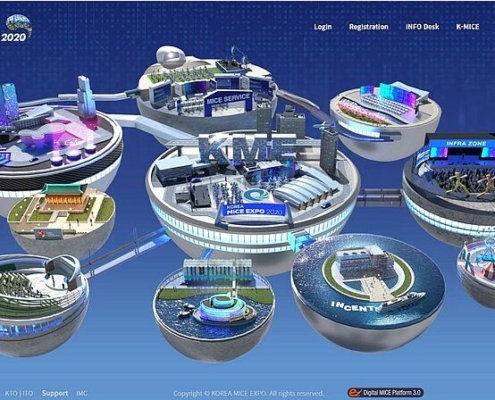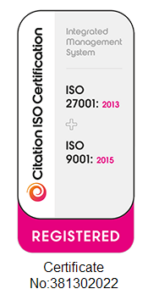
With travelling to events become more challenging, event organisers must be ready to rethink their approach to hybrid.
Many organisations are wondering what is the shape of things to come when delivering an event?
In recent months there have been a lot of live shows and events as companies use up pre-COVID budgets and pre-contracted venue bookings in a use-it-or-lose-it trend. But despite getting back to live, the…

Understanding the delegate journey: Why hybrid events matter
Enhancing the delegate journey in a hybrid event: 1. Adapt your strategies: improve engagement through translation. 2. Question what’s right: What’s the profile of these delegates from different parts of the world?, Why would they come to a live event?, What might stop them from coming? What can we do to still reach out and engage them more effectively, make it meaningful and impactful for them, and potentially bring in current and future membership fees?

Didactic versus interactive learning: Why well-planned networking is integral to virtual conferences
Whether through networking or poster sessions, the point is to create ways in which the audience can learn from the experts, engage with key opinion leaders and gain access to respected leaders they wouldn’t normally have a chance to speak with. How that is branded – networking, engaging conversations – or the methods used are less important than ensuring learning is more interactive.

Small gatherings: Bringing live interaction to hybrid and virtual meetings through hubs
Virtual conferences reduce financial and travel barriers that are inherent to in-person conferences, opening up knowledge-sharing to participants that don’t have the resources to travel to major conferences. However, survey results found many respondents found virtual networking to be contrived and inauthentic. One way this can and has been addressed is through local networking sites or hubs.

Breaking Down Access to Knowledge Barriers through Virtual Conferences
Virtual meetings have provided a lifeline during the Covid-19 pandemic, but also have a number of additional benefits, which can and should be part of the future of all conferences and symposia. Leveraging virtual helps bring down knowledge barriers based around cost, gender, career stage and geographic location.

To the Moon and Back: Measuring Your Carbon Footprint with Physical Meetings
The health risks of large in-person meetings have become apparent in recent years, but there is also the environmental impact to take into account. Now is the time to consider new meeting formats, which with a carefully planned design can be just as fulfilling.

Tips and Tricks for Running a Successful Virtual Event
Here are a few simple tips and tricks to consider when running a virtual meeting which include understanding why it is crucial to rehearse beforehand, knowing the right set-up when using a platform that you are unfamiliar with, and keeping up to date with updates.

Virtual Stress: Why Online Meetings are More Complex Than You Realise
Running a virtual meeting is not as easy as it might seem. Meeting organisers need to be able to coordinate the speakers, manage the flow of the meeting, and deal with technology that may be unfamiliar to them. They often feel pressured by colleagues to deliver high-quality sessions despite lacking the necessary experience.

Five Takeaways for Enhancing the Virtual Learning Experience
There are five takeaways to consider when planning a virtual learning event: Less is more, encourage the exchange of ideas between students, have a good balance of speakers and educators, find out what the audience really need to know, and make sessions available on-demand.

The Power of Virtual to Bring Knowledge to Diverse Audiences
Virtual learning may be more effective than in-person learning when it comes to attracting non-native English speakers. The tools that are available to us mean we can provide the audience with language options that increase both comprehension and accessibility.

How Cultural Expectations Affect Interactions in Meetings
Are you from a high-context or a low-context culture? Hwajeong Lee explains how different cultures communicate and why understanding these differences in communication is crucial when conducting global meetings and interactions.

From Physical to Virtual: Trends for International Events in South Korea and China
Youngsan University's Ph.D. candidate Hwajeong Lee looks at how the transition to virtual has affected the MICE industry (meetings, incentives, conferences, and exhibitions) in South Korea and China and how the use of technology has changed as a result.
